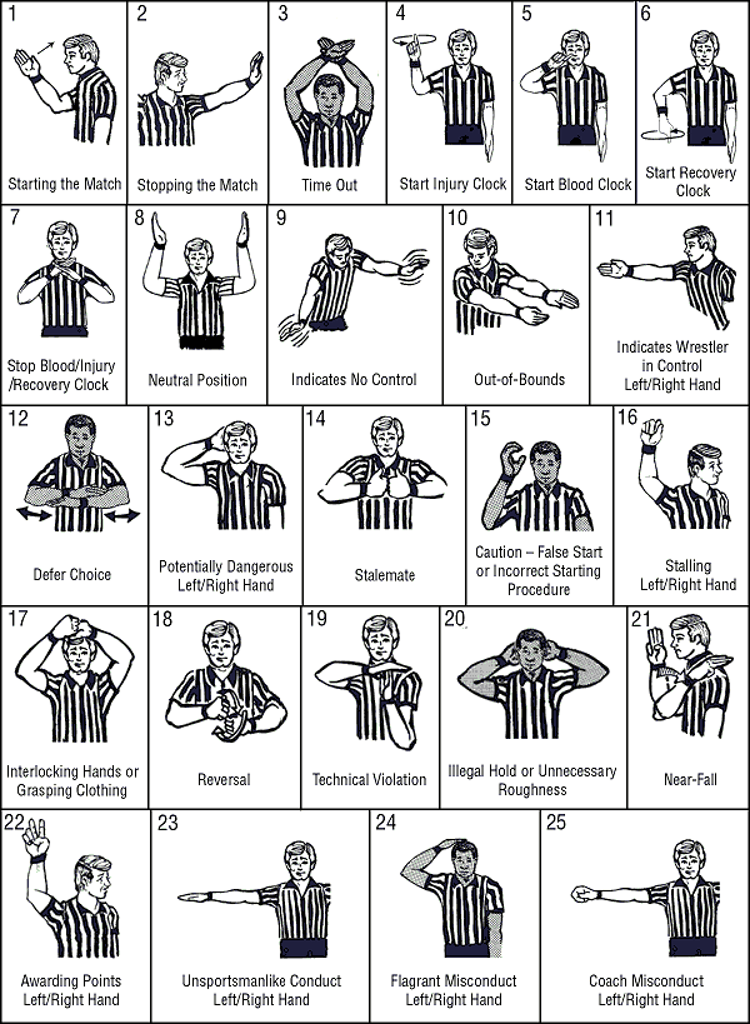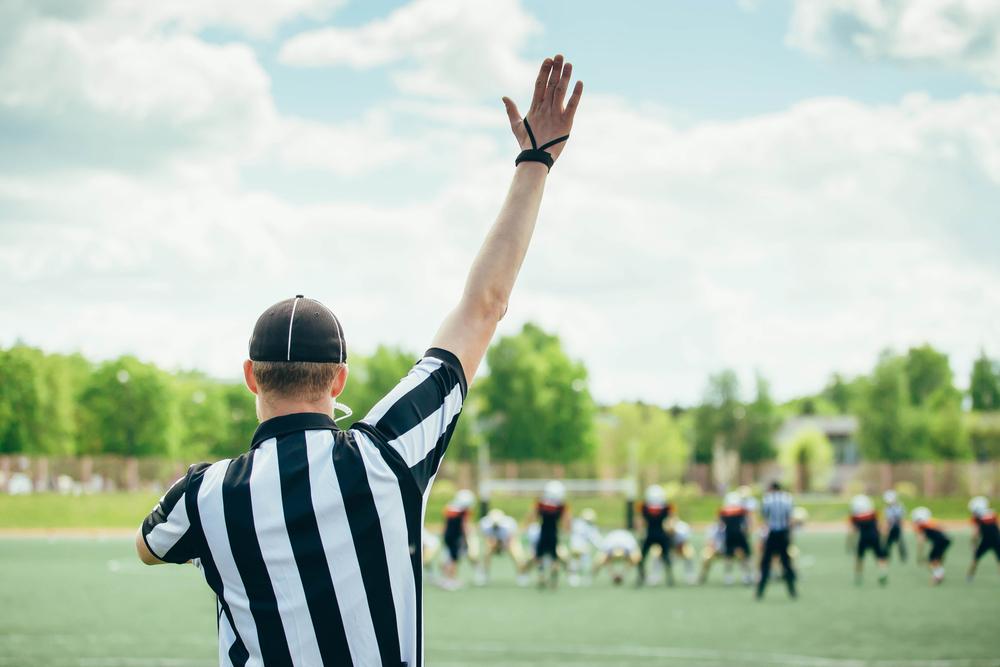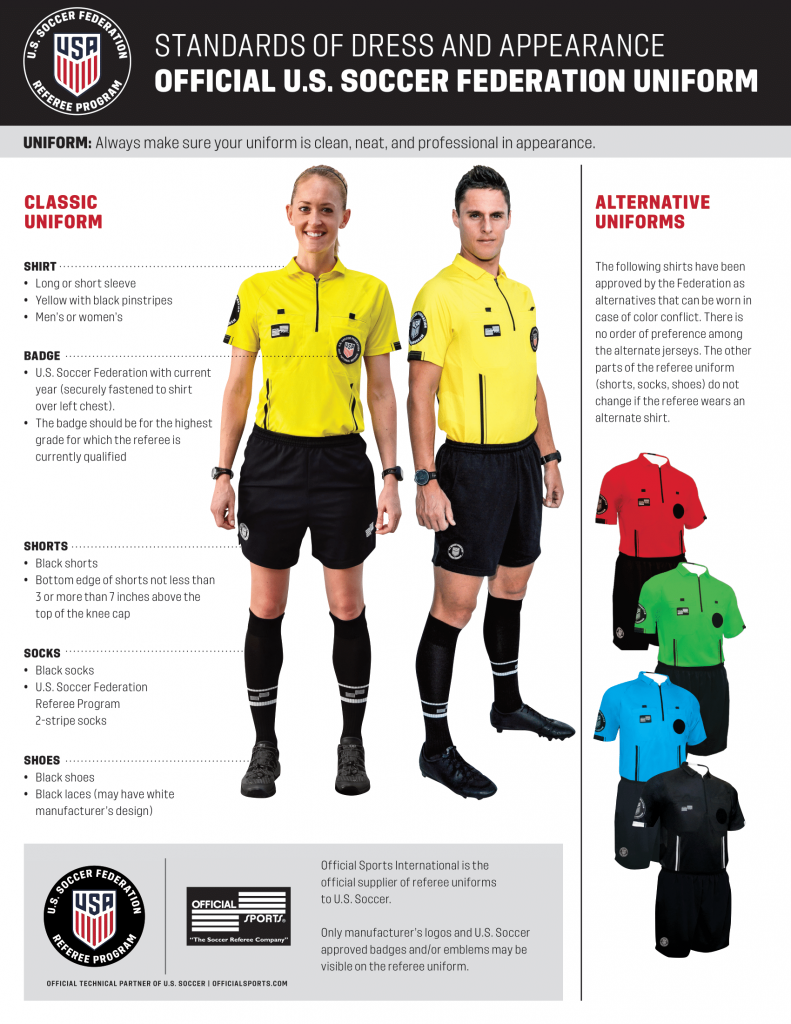Fantastic Info About What Is The Referee Code

Decoding the Referee Code
1. What's the Big Deal About a "Referee Code" Anyway?
Ever watched a sports game and wondered why the referee made a certain call? Or maybe youve yelled at the TV, convinced they've missed something crucial? Well, a lot of what refs do is guided by something called the "referee code." It's not some secret handshake or underground society (although sometimes it might seem like it!). Instead, its a set of principles and guidelines that govern how referees should act, make decisions, and manage a game.
Think of it as the unwritten rulebook for referees. The formal rules of a sport lay out what's legal and illegal. But the referee code goes deeper. It's about maintaining fairness, integrity, and the spirit of the game. It influences how a ref handles everything from minor infractions to major controversies. It's about showing respect for players, coaches, and the game itself. It's a bit like the golden rule, but for people in stripes (or whatever color their uniform happens to be).
Sometimes, it's about applying common sense when the official rules don't quite cover a situation. The referee code encourages the ref to consider the intent of the players, the flow of the game, and the potential impact of their decisions. Ultimately, it's aiming to ensure a fair and enjoyable contest for everyone involved. It is the referees compass when navigating the often choppy waters of competitive sports.
So, the next time you see a ref making a tough call, remember there's more to it than just the rulebook. They're operating within this broader framework of the referee code, trying to balance the rules with the spirit of the game. And sometimes, just sometimes, they actually get it right!

Football Referee Hand Signals Volleyball Workouts Foo Vrogue.co
Fairness, Consistency, and the Elusive Concept of "Game Management"
2. Navigating the Nuances
At its heart, the referee code emphasizes fairness and consistency. Referees are expected to apply the rules impartially, regardless of which team or player is involved. This means avoiding favoritism and striving to make calls that are based solely on what they observe, not on personal biases or outside influences. It can be harder than it sounds when you're under pressure, but that is what sets the good ones apart from the rest.
Consistency is just as vital. A referee should strive to call similar plays the same way throughout the game. This helps to establish a clear understanding of the rules and allows players to adjust their behavior accordingly. Inconsistency can lead to confusion, frustration, and a feeling that the game isn't being officiated fairly. Imagine if one minute a slight bump is a foul, and then next minute it is completely ignored. Players would be confused and the game would be chaotic.
"Game management" is another key component. This refers to the referee's ability to control the flow and tempo of the game. This involves using their judgment to decide when to call fouls, when to let minor infractions go, and how to communicate with players and coaches. A good ref will anticipate potential problems and proactively address them before they escalate. This doesn't mean being overbearing, but rather showing awareness of what is going on, and being able to address it before things get heated.
Ultimately, game management is about creating an environment where the game can be played safely and fairly. It's about allowing the players to decide the outcome on the field, rather than allowing the officiating to become the story. A well-managed game is one where the referees are present but not intrusive, guiding the action without dominating it. This is the mark of a truly skilled and experienced official. It's like being a conductor of an orchestra, guiding the different instruments to play in harmony. It takes skill, patience, and an understanding of the music, or in this case, the game.

Basketballrefereehandsignals. Basketball Workouts,
Integrity and Ethics
3. Beyond the Rules
The referee code places a significant emphasis on integrity and ethical conduct. Referees are expected to maintain the highest standards of honesty and impartiality, both on and off the field. This means avoiding any conflicts of interest, refusing bribes or other forms of inducement, and acting in a way that reflects positively on the sport. It's about protecting the integrity of the game and upholding the public trust.
Maintaining confidentiality is also crucial. Referees may have access to sensitive information about teams, players, or league operations. They are expected to keep this information confidential and not disclose it to unauthorized parties. This helps to ensure fair competition and prevent any potential for insider advantage. They are meant to be trusted guardians of fair play, and protecting information is part of that.
The code of ethics also guides referees in their interactions with the media and the public. Referees are generally discouraged from commenting publicly on specific calls or games, as this can create controversy and undermine the credibility of the officiating. Instead, they are expected to focus on promoting the sport and educating the public about the rules. They act as ambassadors for the game, promoting sportsmanship and respect.
In essence, the integrity and ethics component of the referee code is about ensuring that referees are acting in the best interests of the game, not their own personal interests. It's about maintaining a high level of professionalism and upholding the values of fair play and sportsmanship. They're not just enforcing the rules; they're guardians of the game's soul.

Dealing with Difficult Situations
4. When the Heat is On
No matter what the sport, referees inevitably encounter difficult situations. These can range from dealing with angry players or coaches to resolving disputed calls under intense pressure. The referee code provides guidance on how to handle these situations effectively, emphasizing the importance of remaining calm, professional, and respectful. Think about it, the referee has to stay cool while everyone around them is losing their minds.
Communication is key. Referees are encouraged to communicate clearly and concisely with players and coaches, explaining their calls and providing rationale when necessary. This can help to defuse tension and prevent misunderstandings. Active listening is also important. Taking the time to understand the other person's perspective can help to find common ground and reach a resolution. It's not always about being right; it's about finding a way forward.
The referee code also emphasizes the importance of maintaining control of the game. This means being assertive when necessary and taking appropriate action to address misconduct. This could involve issuing warnings, penalizing players or coaches, or even ejecting them from the game. The goal is to maintain order and ensure that the game can be played safely and fairly. It's like being a parent sometimes, you don't want to be the bad guy, but you have to step in when things get out of hand.
Ultimately, dealing with difficult situations requires a combination of technical knowledge, communication skills, and emotional intelligence. Referees must be able to remain calm under pressure, make sound judgments, and effectively manage conflict. The referee code provides a framework for navigating these challenges, helping referees to maintain control and ensure a positive experience for all involved. It's not an easy job, but it's a crucial one.

Referee Program
The Referee Code
5. Why the Referee Code Matters
The referee code extends beyond the boundaries of the playing field. It influences how referees conduct themselves in all aspects of their lives, promoting integrity, fairness, and respect. It's not just about officiating a game; it's about embodying the values of sportsmanship and ethical behavior. They are role models to many people, and their actions reflect that.
The code helps to foster a positive environment for sports, promoting fair play, safety, and enjoyment. By upholding the principles of the referee code, officials contribute to the overall integrity of the game and help to ensure that it is played in the right spirit. This benefits everyone involved, from the players and coaches to the fans and the wider community. When done right, it makes the sport more enjoyable for all.
The referee code also serves as a guide for new officials, providing them with a framework for learning and development. By understanding the principles of the code, aspiring referees can develop the skills and qualities necessary to become effective and respected officials. It's like having a mentor in the form of a document, guiding you through the process.
In conclusion, the referee code is more than just a set of rules and guidelines. It's a reflection of the values and principles that underpin sportsmanship and ethical behavior. By upholding the code, referees play a vital role in promoting fair play, safety, and enjoyment, contributing to the overall integrity of the game and enriching the experience for all involved. It is the bedrock that the entire game is built on.

Soccer Referee
Frequently Asked Questions (FAQs)
6. Your Burning Questions About the Referee Code, Answered!
Got questions about the referee code? We've got answers! Here are a few common queries:
Q: Is the referee code written down somewhere, or is it just something everyone "knows"?
A: That's a great question! While specific details may vary depending on the sport and organization, the core principles of the referee code are often codified in official training materials, handbooks, or ethical guidelines. It's a blend of official documentation and shared understanding within the officiating community. But you won't find a single, universally agreed-upon document called "The Referee Code." It's more of a concept, a philosophy.
Q: What happens if a referee violates the referee code? Are there consequences?
A: Absolutely. Violations can range from minor reprimands to serious sanctions, depending on the severity of the offense. Consequences can include suspension from officiating, loss of certification, or even legal action in extreme cases. The aim is to uphold the integrity of the game and deter future misconduct. Nobody wants a rogue ref!
Q: Does the referee code differ between amateur and professional sports?
A: While the fundamental principles remain the same — fairness, integrity, consistency — the application of the referee code can differ. Professional sports often involve higher stakes, greater scrutiny, and more complex rules. Professional referees may face more intense pressure and require a higher level of skill and experience to manage the game effectively. But at the end of the day, they all need to follow the same basic code of ethical conduct, regardless of the level of play.
Q: Is it okay to question a referee's call?
A: It's a common question that always appears. Well, in many sports, there's a designated way for coaches or captains to respectfully inquire about a call. However, directly confronting or verbally abusing a referee is generally frowned upon and may result in penalties. Remember, they are human and doing their best under pressure!